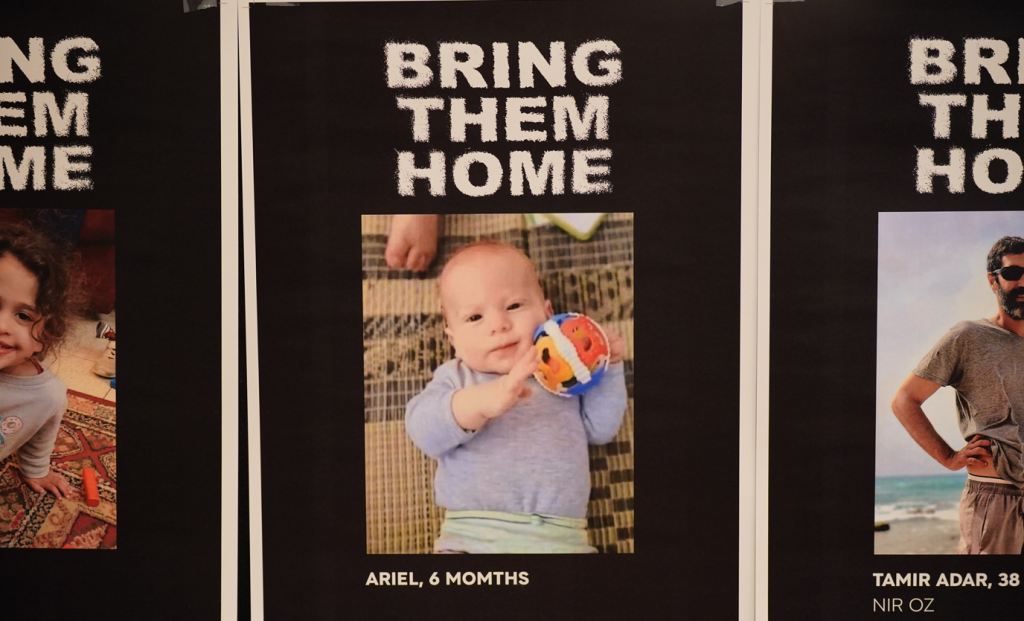Paragraph 1: The Deal and Initial Reactions
A landmark agreement has been reached between Israel and Hamas, brokered with significant US involvement, to secure the release of hostages held captive in Gaza since the October 2023 Hamas attacks. The deal, which also involves a ceasefire and reportedly the release of thousands of Palestinian security prisoners, offers a glimmer of hope for the families of the remaining 98 hostages, 94 of whom were abducted during the initial assault. While this agreement marks a significant development, it’s met with a mixture of cautious optimism and apprehension. Families, while yearning for the return of their loved ones, express concerns about the phased nature of the agreement and the potential for delays or incomplete implementation. The uncertainty surrounding the fate of hostages still held captive fuels their anxiety, with some expressing a determination to continue their fight until everyone is brought home.
Paragraph 2: Families’ Hopes and Fears
The emotional rollercoaster experienced by the hostages’ families is palpable. Efrat Machikawa, niece of captive Gadi Moses, expresses cautious optimism, tempered by past disappointments of near-miss deals. The families desperately cling to the hope of reunion, yet they also grapple with the agonizing uncertainty surrounding their loved ones’ conditions after enduring over 460 days in captivity. The prospect of rehabilitation and the potential for long-lasting physical and psychological trauma weigh heavily on their minds. The agony of not knowing the full extent of their ordeal adds another layer of complexity to their already overwhelming emotional burden.
Paragraph 3: Focus on the Unreturned and Living Captives
While the initial phase of the agreement brings some relief, the focus remains firmly on those still held captive. Ruby Chen, father of American-Israeli IDF Sgt. Itay Chen, expresses disappointment that the agreement doesn’t explicitly address the timeline for the second phase of releases. He underscores his determination to continue advocating for his son’s return, placing his hopes on the incoming Trump administration to prioritize the remaining hostages. Yehuda Cohen, father of IDF soldier Nimrod Cohen, anticipates a long and arduous journey to normalcy for his son, acknowledging the potential physical and mental toll of prolonged captivity.
Paragraph 4: Political Landscape and International Pressure
The breakthrough in negotiations follows intense diplomatic efforts, particularly by US envoy Steve Witkoff, who reportedly pressed for significant concessions from Israel. Outgoing President Biden’s administration and President-elect Trump have both played roles in pushing for a resolution to the hostage crisis. Trump’s strong pre-inauguration warning, suggesting repercussions for a failed agreement, underscores the high-stakes nature of the situation and the significant international pressure exerted to achieve a deal. This underlines the complex geopolitical backdrop against which the agreement has been forged.
Paragraph 5: Human Cost and the Bibas Family’s Plight
The story of the Bibas family poignantly illustrates the devastating human cost of the Hamas attacks and the protracted hostage crisis. Taken captive from Kibbutz Nir Oz during the initial incursion, their fate remains uncertain, leaving their relatives in agonizing suspense. Jimmy Miller, Shiri Bibas’s cousin, expresses both hope and fear, highlighting the family’s desire for their safe return while acknowledging the potential challenges of their readjustment after such a traumatic experience. The approaching second birthday of baby Kfir, while a stark reminder of time lost, also offers a beacon of hope for a potential reunion.
Paragraph 6: The Hostages and Missing Families Forum’s Response
The Hostages and Missing Families Forum, representing the collective voice of the families affected by the hostage crisis, welcomes the agreement with a mixture of relief and cautious optimism. They express gratitude for the efforts of both the Biden and Trump administrations and the international community in facilitating the deal. However, they also emphasize their deep anxiety over the potential for the agreement’s incomplete implementation, highlighting the need for swift and decisive action to ensure the return of all hostages. Their unwavering commitment to bringing every captive home underscores the human dimension of this complex geopolitical conflict and the enduring strength of hope amid unimaginable suffering.










